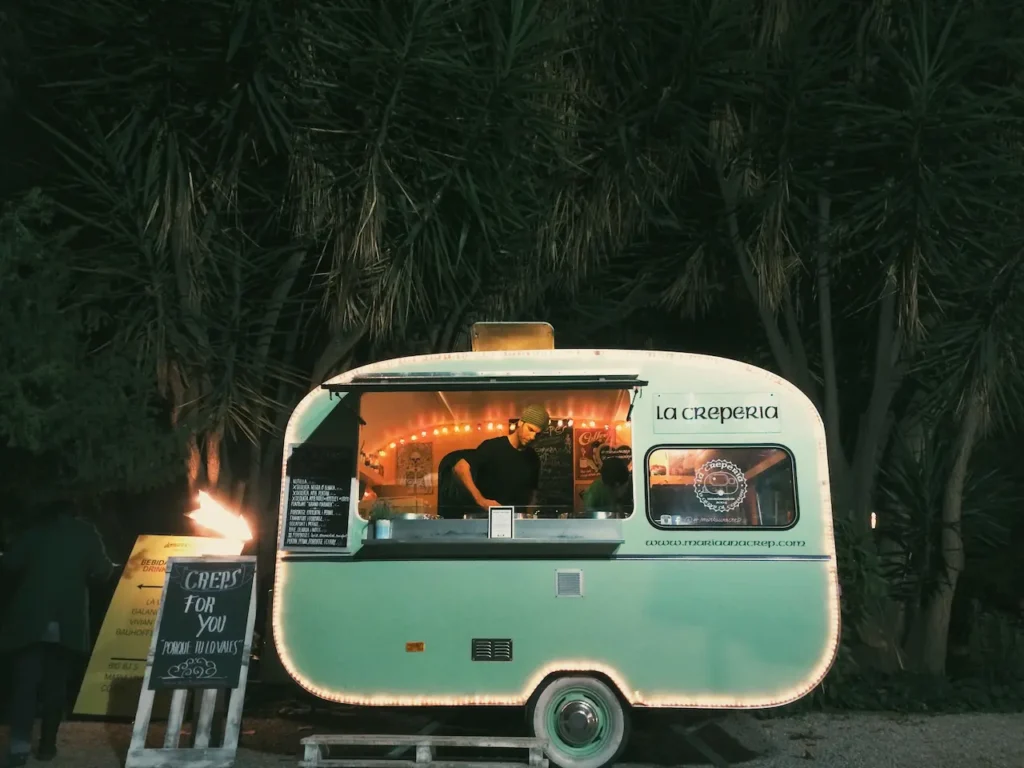Starting a Food Truck Business in 2024: Challenges and Opportunities
Everybody wants to be a successful entrepreneur and out of all the different potential pathways available to ambitious individuals, the food industry is definitely a popular one. A niche sub-section within the larger food industry is the truck food one, offering interesting opportunities, as well as challenges that come along the way.
The point of this article is to explore these opportunities and challenges, assess relevant data and numbers, and hopefully provide a balanced perspective regarding the viability of starting a successful food truck business in 2024.
The Benefits and Challenges
The food truck industry has experienced substantial growth over the past decade, showing no signs of slowing down. The appeal is clear: lower startup costs than traditional brick-and-mortar restaurants, the flexibility to change locations, and the ability to test culinary concepts without long-term commitments. However, the road to success is far from smooth, and aspiring food truck owners must be prepared to face a myriad of challenges.
While not as costly as other alternatives, getting any business off the ground is going to dig into the pockets. While costs can vary widely depending on location and concept, prospective owners should expect to spend anywhere from $50,000 to $250,000 to get their business off the ground. This includes purchasing and outfitting the truck itself, which can range from $30,000 for a used vehicle to over $100,000 for a new, custom-built truck. Additional expenses include kitchen equipment, point-of-sale systems, initial inventory, and various permits and licenses.
Speaking of permits and licenses, navigating the regulatory landscape can be a rather tedious task for new food truck owners. Health department certifications, business licenses, parking permits, and food handler’s permits are just a few of the legal requirements that vary by city and state. In some areas, restrictive regulations on where and when food trucks can operate can significantly impact a business’s potential for success.
We did mention the growth of the section, and with that competition in the food truck industry has also intensified in recent years. As the market becomes more saturated, standing out from the crowd becomes increasingly challenging. This means that building a brand that a client can trust and pick over other alternatives will come with a higher degree of challenge.
The unpredictable nature of outdoor dining presents another set of difficulties. Weather conditions can dramatically affect daily sales, with rainy or extremely hot days potentially wiping out an entire day’s revenue. Additionally, the seasonal nature of the business in many regions means that food truck owners must carefully manage their finances to weather slower periods.
Despite these challenges, the potential benefits of starting a food truck business in 2024 remain enticing. The lower overhead costs compared to traditional restaurants allow for greater flexibility in menu pricing and experimentation. Food trucks can also capitalize on the growing trend of experiential dining, offering unique and Instagram-worthy food options that appeal to younger generations.
The mobility of food trucks also presents unique opportunities. Owners can follow the crowds, setting up at festivals, corporate events, and private parties to maximize exposure and revenue. This flexibility allows for a diverse customer base and the ability to adapt quickly to changing market conditions.

Talking Numbers
In terms of profitability, successful food truck businesses can generate impressive returns. While earnings vary widely based on location, concept, and business acumen, many food truck owners report annual revenues ranging from $250,000 to $500,000, with profit margins typically falling between 7% and 20%. New entrants to the market should expect a ramp-up period before reaching such levels of profitability.
Of course, revenue does not equal earnings, and considering the expenses that are required to sustain the business, typically, the owner’s salary for a food truck is less than 50% of the profit. Many owners, especially in the early stages of their business, may find themselves earning between $24,000 and $153,000 per year, with the median annual income hovering around $70,000. However, these figures can increase substantially as the business grows and becomes more established.
If we compare these numbers to other niche jobs around various industries, we can see that it stacks up decently well. Of course, what represents a somewhat rare challenge is the wide gap between the bottom and top average earners on that 24-153 thousand scale. However, even this gap is not a unique phenomenon, and other workers across various industries have to deal with it as well. For example, how much card dealers make in a year falls between 30 to 140 thousand USD.
Typically when you see gaps like these they come from unique variables that are a part of the industry. With the card dealer example, the salary is often going to vary based on the tips that the dealer is receiving, which is often a variable outside of the individual’s control. For the food truck owners, it is of course the inherent challenges that come with being an entrepreneur.
Still, business is all about growth and one of the most appealing aspects of owning a food truck is the potential for said growth and expansion. Successful food truck businesses can serve as a stepping stone to larger ventures, such as multiple trucks, catering operations, or even brick-and-mortar restaurants. This scalability allows entrepreneurs to test their concepts and build a loyal customer base before making larger investments.
Based on this, starting a food truck business in 2024 remains a viable option for those with a passion for food and an entrepreneurial spirit. Of course, even with all the potential, this pathway is going to be inherently risky, and one should always have backups and alternatives in the case of failure.
